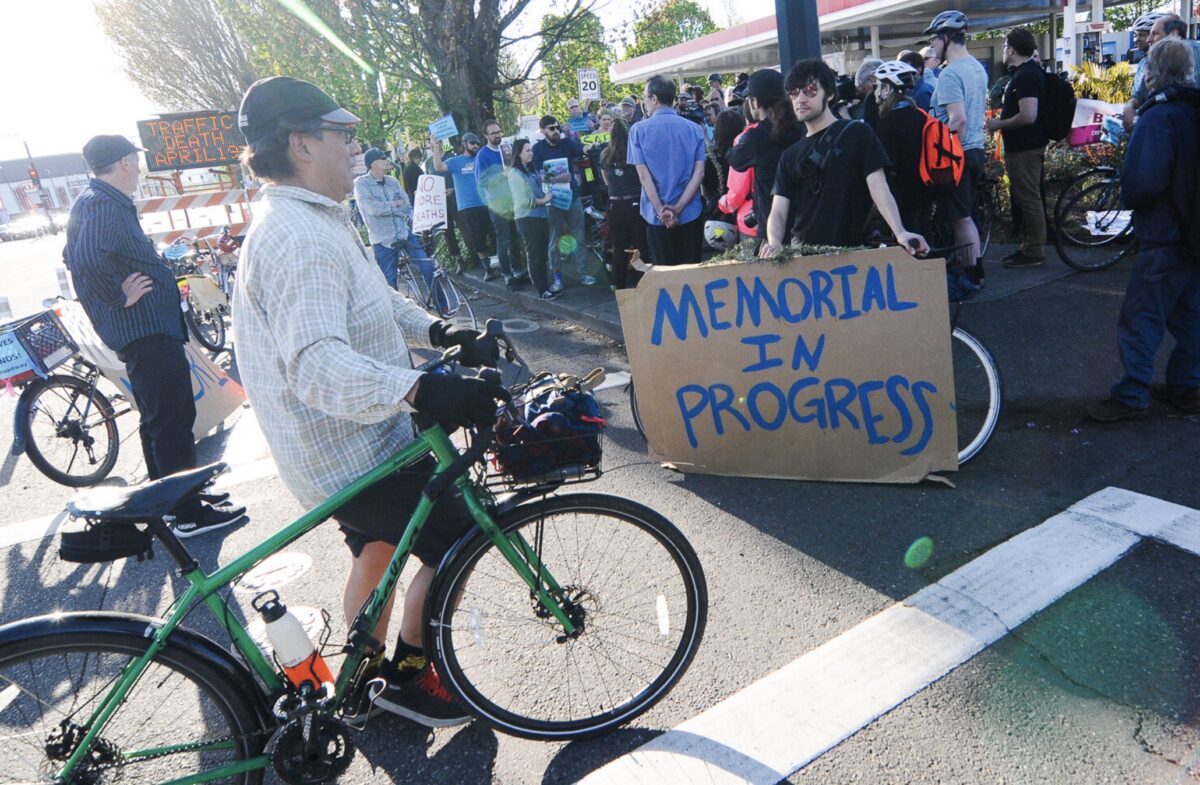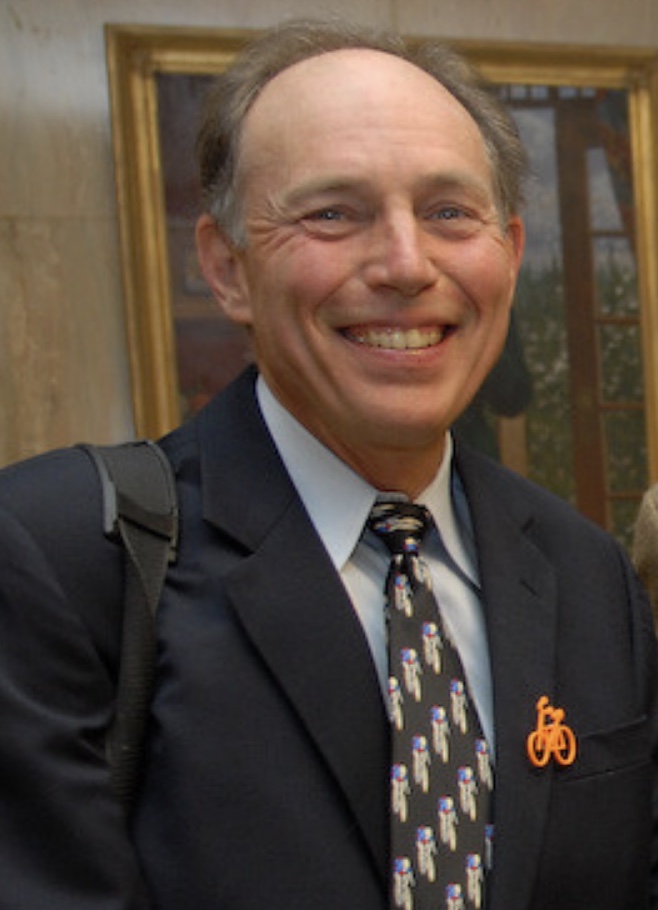
Welcome to Get Legal, a column that goes deep into traffic law with the help of experts in the field. Today’s expert is Ray Thomas, a Portland-based lawyer at Thomas, Coon, Newton & Frost with decades of experience in bicycle law and advocacy. Read past Get Legal columns here.
“You can have a bike funeral, complete with a funeral procession leader whose bicycle is outfitted with special lights making other traffic stop or pull over.”
– Ray Thomas
As more people integrate cycling into their lives, more parts of our lives will be done on a bicycle.
Most people read that and think about things like biking to work or to the store. But Portlanders are different. Here we do house moves by bike, we have parties on bikes, we carry massive loads of cargo on our bikes, we ride bikes after disasters, we bike through “drive” throughs, and yes, some people have even considered funeral processions by bike.
After all, if funeral processions can happen with cars, why can’t we use bikes to carry a loved one to their final resting place?
This situation came up recently when friends of the late Aaron Tarfman considered a funeral procession through the streets to a local cemetery. Aaron was staunchly anti-car and it would have been antithetical to his values to use one of them — much less several in a slow-moving parade through the city — for his final ride. As initial emails flew around, legal questions arose. Ultimately, noted local lawyer and bike law expert Ray Thomas (as in Thomas, Coon, Newton & Frost, a longtime BikePortland advertiser) was cc’d on one of the emails.
Thomas looked into the issue and discovered that, lo and behold, it’s actually legal to use bicycles for funeral processions in the state of Oregon.
“Frankly, conducting a funeral procession by bike had never occurred to me before except as a ‘why not’ sort of thing,” Thomas shared with me via email recently. He wanted to find out not only if it could be legal to transport remains by bicycle on public streets; but whether participants in a bicycle funeral procession would have the same legal protections while participating in one as car users do.
“Stomping around in the ORS and case law revealed no direct answers about bike funerals but it seemed reasonably clear that you can have a bike funeral, complete with a funeral procession leader whose bicycle is outfitted with special lights making other traffic stop or pull over,” Thomas wrote.
Let’s dig into the statutes…
In Oregon law, a funeral procession is defined (in ORS 801.288) as, “two or more vehicles, including any Funeral Lead Vehicle or Funeral Escort Vehicle, accompanying the body or cremated remains of a deceased person.” According to Thomas’s interpretation, a “Funeral Lead Vehicle” and/or a “Funeral Escort Vehicle” can be any vehicle — including a bicycle since a bicycle is a vehicle in Oregon law — equipped with either red or red and white lights (ORS 811.800 and ORS 816.285).
Why does this matter? Because by law, a funeral procession is given many unique rights over other users of the road.
“Funeral processions are allowed to essentially take over an intersection if the Funeral Escort Vehicle or Funeral Lead Vehicle lawfully enters an intersection, and the following procession may then enter the intersection without stopping,” Thomas says, citing ORS 811.804. “The statute requires that a person must yield the right of way to a funeral procession and stop before entering any intersection occupied by the procession, then remain stopped until the procession has passed.”
If someone drives, or even walks or bikes through an official funeral process, they can be found in violation of ORS 811.802, “Failure to yield right of way to funeral procession,” a class D traffic violation. Class D is the lowest level traffic violations and has a maximum fine of $250, minimum of $60 and presumptive fine of $110.
Thomas also believes that standard bike lights would be ample enough to trigger the legal requirements to lead a funeral procession by bike, but he recommends as large and as bright of a light as possible for better daytime visibility.
And in case you were wondering, you don’t need a special license or professional training to lead a funeral procession. ORS 432.005, subsection 25 grants any person the right to act as a “Funeral Process Practitioner.” There’s also no requirement to get a permit or clear the route with any authorities.
But keep in mind this big caveat: Thomas warns that,
“If a funeral procession were conducted in order to disrupt traffic or cause trouble for other road users, then it’s likely some regulatory authority could be called upon to control the disruption. Such things could be viewed as misuse of the statutes by deliberating invoking the funeral law privileges. Setting up a mock funeral procession as a direct action would likely be viewed as a ‘violation of the public order’ (a vague concept that can be stretched to include any number of things) and participants could be treated with hostility by law enforcement.”
In Thomas’s decades of experience with traffic law he has never heard of a case where someone misused the funeral procession law. Some things are sacred, and should be kept that way. But if you ever want to honor a friend or member of your family with a vehicle procession that doesn’t rely on cars, it’s good to know there is room in the law to make it happen.



